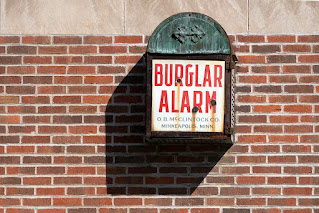
Here I am, a hypocrite. Yes, me. I long have celebrated the pokey "cup and string" Internet out here as a great reason to live in the country.
The typical rant: After all, fiddly-foo, brain-addled screen addicts would lack the data to live their zombie-halflives here, and thus they'd stay in their Stepfords and other boring cul-de-sacs.
End of rant: That all sounded great until I got de-prioritized in January after 100GB of data, because the pandemic and a medical problem have me working from home. Zoom uses a chunk of data, even without HD video enabled.
Throttled
The other satellite provider here offers an even lower strangulation point: 50 GB per month. My old plan with 50, plus the option to buy more priority data, has vanished. There is no cable out here; I even called a cable monopoly I absolutely despise, just to check.
This was looking grim: I could teach from my hermetically sealed campus office, but that meant getting close to undergrads I simply do not trust. Until I had my vaccinations or a good prognosis from my doctors about some tests for prostate cancer underway, I was not going back to campus. We knew one person hospitalized for COVID and two others now in a graveyard. By semester's end, a quarter of my students would have been found positive, about half had been in quarantine because of exposure, and one landed in the hospital with a throat swollen shut by COVID.
Data strangulation sounded better. We'd figure something out.
I reasoned that there had to be some other option aside from watching the data-count creep up to 100, then the Internet slow down to a crawl.
Enter, BOIP
This sounded promising, "the technology
infrastructure company that economically and efficiently delivers high
speed broadband access and computing services to underserved and
distressed residents on behalf of civic organizations and community
stakeholders."
Small firms like BOIP (Business over internet protocol) offer a WiFi router for a home network, and they have contracts with major carriers such as AT&T or Verizon to get your home the precious data. The router must be purchased for about $300, but it can be returned for a refund and the contracts are month-to-month.
They bring broadband via a cell tower to a box in the house that looks like an alien critter. If you know satellite Internet, you know how weather and other factors influence latency: speed lags below what would otherwise be optimal. BOIP's tech person and I talked 0s and 1s for a bit...several bytes actually (Hah--I know enough UNIX to be dangerous to myself) and he claimed that it would provide a consistent signal at a speed that might be slower overall than satellite at its best, but without latency: enough for Zoom, streaming films, and ordinary applications.
No data cap, no strangulation point. I was certain there would be a catch. Everything in this sad world has a catch, from the doctor paddling you for that first breath until the final clacking of the casket lid.
Exit BOIP, Enter UbiFi
The catch was the carrier BOIP uses. After about 2 months, disaster.
The folks at BOIP are as nice as they can be, but suddenly they lost the carrier they'd been using. We got an apologetic e-mail with 72 hours notice that we might lose Internet. I asked on our local county group, and this was not the first time BOIP had this issue.
We were teaching remotely. I tried to be as civil as I could be, but I called BOIP and said, basically, "heck no. What are my other options?"
They didn't know but were trying as hard as possible to find a new carrier. So I looked around, and I found a national rural-WiFi service, Ubifi. I bought their router installed it doing stupid-UNIX tricks, and in ran it alongside BOIP for a month. Both services cost us $99 per month.
Same speed, similar latency, but one difference: Ubifi has a contract with AT&T and are big enough to merit the behemoth's favor. BOIP scrambled and found someone new to host them. We kept their alien invader, too.
So there we were: two routers going, comparing services. After a month, I returned BOIP's router and got a full refund for the device.
Lessons Learned
If you are not good with arcane computer code, you may want to pay someone to install a WiFi router for you. I did it myself for Ubifi; BOIP came to the house and advised me on location and setup (which they did for me).
In the long run, something better will emerge than WiFi. We'll have Elon Musk's space empire Starlink service, 5G WiFi, or orgone-ray generators to get us our episodes of All Creatures Great and Small.
Any of them, including our current service or BOIP, prove cheaper and faster than conventional satellite. Data throttling is an evil thing. Rip that dish out of the ground. I cut mine down with a Sawzall.
Now if we just have enough firewood for all this home-office stuff. My wife is retiring and I will work more from home in Fall, even though I return to in-person teaching.
Next year, six cords. Period. And take those pills the doc gave me. No cancer but I'm on yet another old-guy diet.






